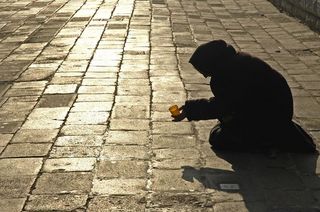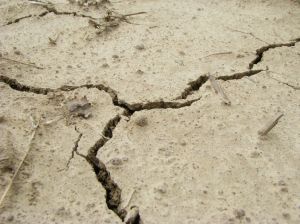A discussion is under way inside the European Union as to how many years are required before its new members will match the living standards prevailing in the rest of the now 25-nation EU
Published:
12 August 2004 y., Thursday
A discussion is under way inside the European Union as to how many years are required before its new members will match the living standards prevailing in the rest of the now 25-nation EU. Many economists predict that even those new members that have relatively strong economies will require at least 30 years to reach the per-capita income levels prevailing in Western Europe.
Of the new EU members, Slovakia and three Baltic states are generally considered to be the fastest-growing economically. Each of them aspire to match the achievement of one of the oldest members of the EU, Ireland, which in the 1990s registered economic growth rates averaging over eight percent.
Willem Buiter, chief economist at the European Bank for Reconstruction and Development in London, says Ireland is a worthy model for the new EU members.
"Ireland has done it. From being a poor west European country they are now a rich west European country, richer than the average west European country and richer even than Britain," he said. "But they had a number of factors working for them that are not present in Eastern Europe, the main thing being the demographics."
Barbara Boettcher, an economist at Deutsche Bank in Frankfurt, agrees that the Ireland model won't be easy to emulate.
"You won't see that in Eastern Europe," she said. "Eastern European countries, which are designed to be winners are those that have attracted a large share of the production oriented foreign direct investment, like Slovakia, Hungary and the Czech Republic have done."
Šaltinis:
voanews.com
Copying, publishing, announcing any information from the News.lt portal without written permission of News.lt editorial office is prohibited.
The most popular articles
 The fate of blue fin tuna hangs in the balance this week as a complete ban on the trade is debated by MEPs.
more »
The fate of blue fin tuna hangs in the balance this week as a complete ban on the trade is debated by MEPs.
more »
 A $100 million pledge from the Government of Japan has helped to secure the funding base and launch the operational phase of two new climate programs supporting forest management and renewable energy investments in developing countries.
more »
A $100 million pledge from the Government of Japan has helped to secure the funding base and launch the operational phase of two new climate programs supporting forest management and renewable energy investments in developing countries.
more »
 Europeans quite happy with their personal situation, but less satisfied with economic and social climate in their country.
more »
Europeans quite happy with their personal situation, but less satisfied with economic and social climate in their country.
more »
 Spain wishes to “make as much progress as possible” to ensure the EU becomes party to the Council of Europe's Convention for the Protection of Human Rights and Fundamental Freedoms soon, according to the Spanish Minister for Justice, Francisco Caamaño, at today's opening of a seminar on the challenges and possibilities arising from the Treaty of Lisbon coming into force.
more »
Spain wishes to “make as much progress as possible” to ensure the EU becomes party to the Council of Europe's Convention for the Protection of Human Rights and Fundamental Freedoms soon, according to the Spanish Minister for Justice, Francisco Caamaño, at today's opening of a seminar on the challenges and possibilities arising from the Treaty of Lisbon coming into force.
more »
 According to Belarusian tradition, a stork brings good fortune to the village it settles in while in western culture the stork is commonly associated with childbirth.
more »
According to Belarusian tradition, a stork brings good fortune to the village it settles in while in western culture the stork is commonly associated with childbirth.
more »
 The World Bank Board of Directors today approved an additional financing credit to the Republic of Moldova in the amount of US $20 million for the Social Investment Fund II Project.
more »
The World Bank Board of Directors today approved an additional financing credit to the Republic of Moldova in the amount of US $20 million for the Social Investment Fund II Project.
more »
 The Spanish Health and Social Policy Minister, Trinidad Jiménez, and the European Commissioner for Employment, Social Affairs and Equal Opportunities, Vladimir Spidla, addressed the press in Madrid on the launch of the European Year for Combating Poverty and Social Exclusion 2010.
more »
The Spanish Health and Social Policy Minister, Trinidad Jiménez, and the European Commissioner for Employment, Social Affairs and Equal Opportunities, Vladimir Spidla, addressed the press in Madrid on the launch of the European Year for Combating Poverty and Social Exclusion 2010.
more »
 The European Commission and the Spanish Presidency of the EU will tomorrow launch the 2010 European Year for Combating Poverty and Social Exclusion.
more »
The European Commission and the Spanish Presidency of the EU will tomorrow launch the 2010 European Year for Combating Poverty and Social Exclusion.
more »
 Smoking at a restaurant like this one in Spain could soon be a thing of the past. Spanish lawmakers want to stub out the habit in public places like bars and restaurants. But it's an unpopular proposal in a country where around 30 percent of the population smoke.
more »
Smoking at a restaurant like this one in Spain could soon be a thing of the past. Spanish lawmakers want to stub out the habit in public places like bars and restaurants. But it's an unpopular proposal in a country where around 30 percent of the population smoke.
more »
 As President of the European Economic and Social Committee, I would like, on behalf of all the Committee's members, to express my sympathy to the victims of the earthquake in Haiti.
more »
As President of the European Economic and Social Committee, I would like, on behalf of all the Committee's members, to express my sympathy to the victims of the earthquake in Haiti.
more »